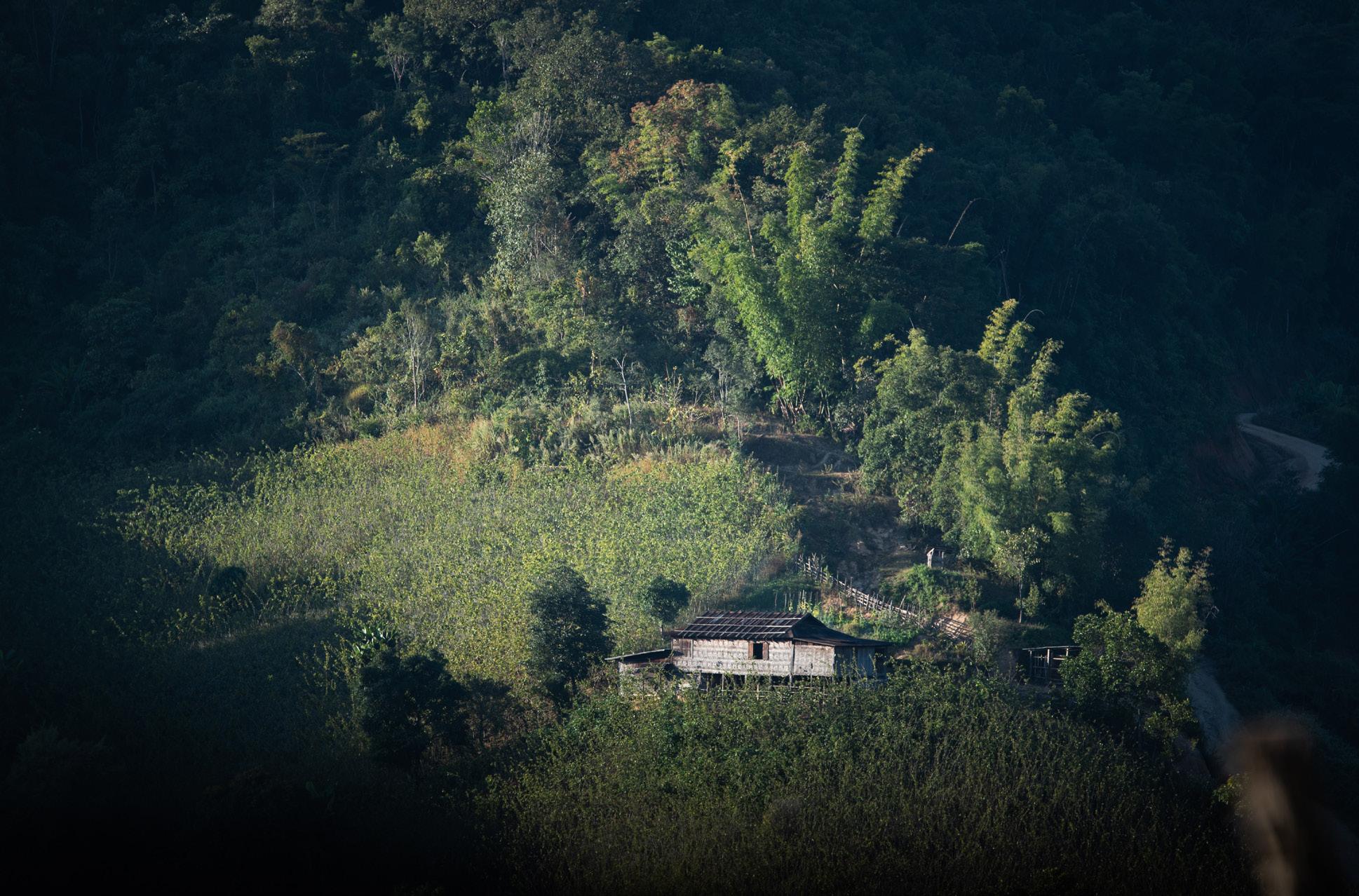
2 minute read
13. Women must be included in Political affairs, regardless of Education

Hillside of Yoke Village, Hopong Township, December 2019
Daw Mya Nang Khin is a Data Entry Officer at Parami Development Network (PDN) in Taunggyi. She explained the Pa-O National Organization (PNO)’s plan to improve political participation through an intensive capacity building training program for youth in Southern Shan state, which they started in 2010. However, there is no specific strategy to include more women in political affairs. In 2020, the PNO plans to nominate a woman MP at the national level, and they “warmly welcome” women to participate in village affairs. According to Daw Mya Nang Khin, there is no practical plan in place to include women. Women are invited to be committee members and accountants, and now nominees for the position of 10 household head, but they are not invited to be a village head.
From Daw Mya Nang Khin’s perspective, women’s political participation is increasing, but women working at the village level must be considered, as well as uneducated women. She also drew a distinction between different branches of the PNO: political party, development sector, and education sector. She works in the local development sector.
While she was conducting the 2nd focus group discussion for this project, a male respondent who was an official from the general administration department (GAD) stated that he attended a PNO capacity building training in 2010. As a result, he became interested in village affairs and is now effectively carrying out his work as a government administrator and encouraging youth to participate in more capacity building trainings.
Daw Mya Nang Khin emphasized that education is one of the main challenges for women to do business and participate in village affairs. Before 2000, most Pa-O women only finished grade 3 or 4, and it was rare to see women pass the matriculation exam and attend university. Most Pa-O women only finish grade 3 or 4, and it is rare to see women pass the matriculation exam and attend university. She also acknowledged a link between education and awareness about gender equality.
The Pa-O National Organization (PNO) uses the training of trainers (TOT) method to conduct leadership, good governance, constitution, gender, and Pa-O history trainings. They connect with a lot of NGOs and have a designated Trainer Group, including both men and women that train people all around the Pa-O region. According to Daw Mya Nang Khin, after these trainings, women have more confidence to speak out, and their decision-making capacity increases. Many women ask for training because they want to speak out and make decisions independently.
When asked about specific barriers for women’s political participation, Daw Mya Nang Khin stated,“Whenever we say ‘women’s empowerment’ and ‘women who are leading’ they just think about educated women. It is not about ‘grading’. We have to think about rural women. We have to create training for them; not only focusing on educated people. Men who are leading the society have to think about women who are not educated; they have to think about women working at the village level. They are also capable. We also need to systematically support women to claim their rights through Parliament.”










